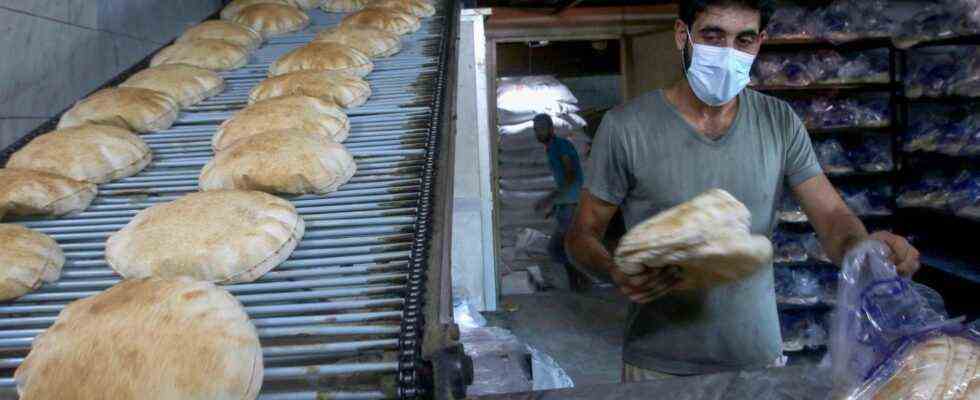report
Status: 12.09.2021 12:03 p.m.
Lebanon is in the midst of the greatest economic crisis in its history – and there is still no way out. Many Lebanese even find it difficult to get what they need: their daily bread.
The range in Mohammad Shaalan’s Al Wafaa bakery has changed significantly. Pastries and sweet foods used to fill the shelves here. Today most of them are filled exclusively with bread. “People only buy Arabic bread and nothing that they used to buy with it. They know that I not only bake local bread, but also pastries and desserts. But they no longer buy that,” said Shaalan to an employee of the ARD in Beirut.
According to the United Nations, four out of five Lebanese now live below the poverty line. The pensioner Bahiej Al Tufaili also only buys bread on this day. There is not enough money for more. “Bread used to cost around 1,500 lira, the equivalent of around 80 cents. Today it costs 6,000 lira, around EUR 3.35. And some sellers take a lot more, whatever they want,” he complains.
No electricity without fuel
The fact that bread prices are constantly rising is primarily due to the state power supply. It is interrupted around 22 hours a day. Bakers like Shaalan have to turn on generators to get their ovens working. But the generators need fuel – and that is in short supply in Lebanon.
“Sometimes we can only bake 50 percent of the bread we usually bake,” says Shaalan. “The oven for Arabic bread in particular needs a lot of fuel. But not only we, the mills too have too little fuel and can therefore only grind a limited amount of flour. How much bread we can bake here also depends on the mills.”
The state can no longer afford gasoline
The state offers baker Shaalan and the mills that supply him a certain amount of gasoline for sale. There is nothing more officially, because the state lacks the foreign exchange for the import of more fuel. And gasoline has become expensive. As the Lebanese central bank cut its subsidies, the price has more than tripled in the past three months.
The President of the Lebanese Bakers’ Union, Ali Ibrahim, warns that some bakeries are about to close. They are running out of flour, he says in an interview with the Arab broadcaster Al Ghad: “We are afraid that the government will not be able to continue to provide fuel. If they do not ensure that, we cannot provide enough bread. “
Not only economic, but also government crisis
It is not only in the bakery industry that one is concerned. Lebanon is in the midst of the worst economic crisis in its history. The national budget is ailing, the Lebanese pound has lost more than 80 percent of its value in eight months. The international community has pledged hundreds of millions of euros in support. But the money is tied to the condition that Lebanon forms a government that implements the necessary reforms.
Baker Shaalan does not understand that the leadership is divided and that since the last government resigned – after the explosion in the port of Beirut more than a year ago – they have still not been able to come to an agreement. “In order for our situation to improve, we finally need a government,” complains Shaalan. “Your work should first focus on the economic and financial problems. It should create a roadmap for what needs to be done to improve the situation here in the country.”
Shaalan knows that time is of the essence. Every day he sees a few more people running out of money. And who find it difficult to buy even the bare essentials – bread.

